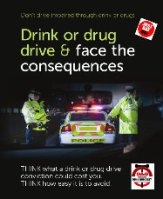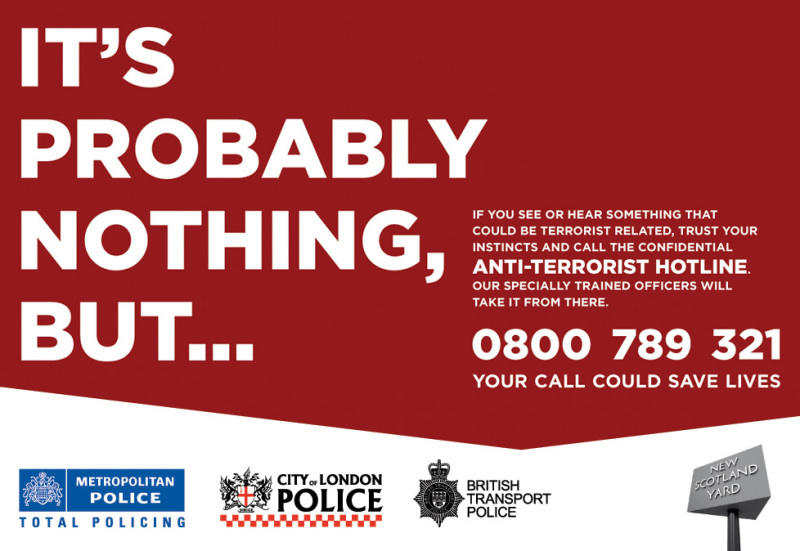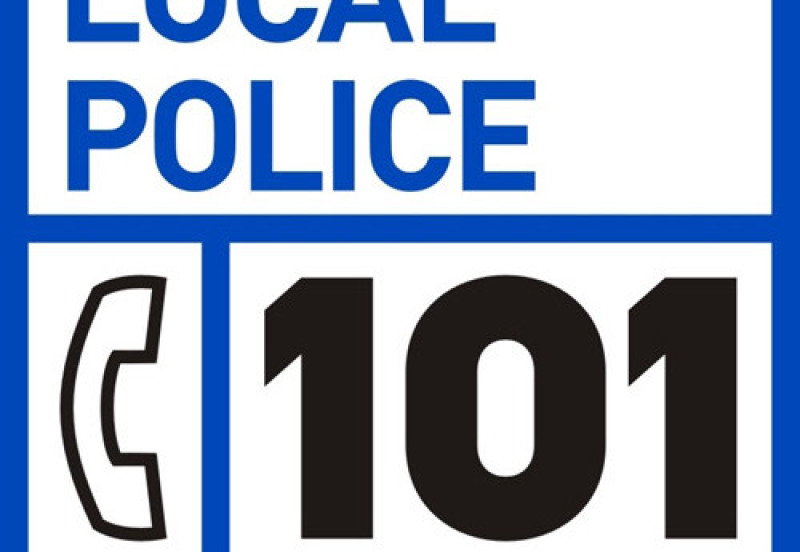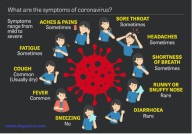Check back here regularly to find out what's going on at D&G Union.
Whether you're a First time buyer, Home Mover, Buy to let investor or looking to review your Remortgage or Protection options, offer from Nexus financial Services for members.
At Nexus, they pride themselves on honesty, transparency and service.
Click link below:
Deadline
for registering to vote in the 2 May 2024 elections
Register
by 11:59pm on 16 April 2024 to vote in the following elections on 2 May 2024:
- Police and Crime Commissioner elections in England and Wales
- local government elections in England
- parish council elections in England
- local authority mayoral elections
- combined authority mayoral elections
- Mayor of London and London Assembly elections
Who can
register
You must
be aged 16 or over (or 14 or over in Scotland and Wales).
You must
also be one of the following:
- a British citizen
- an Irish or EU citizen living in the UK
- a Commonwealth citizen who has permission to enter or stay in the UK, or who does not need permission
- a citizen of another country living in Scotland or Wales who has permission to enter or stay in the UK, or who does not need permission
It introduces new offences for threatening or abusive behaviour which is intended to stir up hatred based on prejudice
towards characteristics including age, disability, religion, sexual orientation, transgender identity, and variations in sex characteristics. These extra provisions will add to the long-standing
stirring up racial hatred offences, which have been in place UK-wide since 1986.
The new laws were developed following Lord Bracadale’s Independent Review of Hate Crime Legislation which concluded that
new specific offences relating to stirring up hatred were needed. The legislation, which was passed by a majority of MSPs in the Scottish Parliament in 2021, was also subject to extensive
consultation and engagement throughout, including with communities affected by hate crime.
Minister for Victims and Community Safety Siobhian Brown said:
“Nobody in our society should live in fear and we are committed to building safer communities that live free from hatred
and prejudice. We know that the impact on those on the receiving end of physical, verbal, or online attacks can be traumatic and life changing. This legislation is an essential element of our wider
approach to tackling that harm.
“Protections for freedom of expression are built into the legislation passed by Parliament and these new offences have a
higher threshold for criminality than the long-standing offence of stirring up racial hatred, which has been in place since 1986.”
The Hate
Crime and Public Order (Scotland) Act came into force on Monday and insiders believe police have received more than 6000 complaints lodged under the law which created a new crime of “stirring up
hatred”
We support you and proud of what you do for others here are just some that’s planned for strike action: NHS staff, Nurses, Ambulance workers, Firefighters, Teachers, University / College staff,
Bus drivers, Train drivers, Postal workers, Civil servants with employees from other companies looking into strikes.
The cost of living has been increasing across the UK since early 2021 with increases in the costs of consumer goods, food prices have been rising sharply over the past year. Inflation is energy
prices, with household energy tariffs and road fuel costs increasing.
Members of Parliament have been handed eight pay rises in the last ten years – while others have seen their average salary slashed by around 7 per cent across the decade, and yet making it clear
that the current strike demands were unaffordable without major spending cuts or tax rises.
The basic annual salary of a Member OF Parliament (MP) in the House of Commons is £84,144, as of April 2022. In addition, able to claim allowances to cover the costs of running an office and
employing staff and maintaining a constituency residence or a residence in London.
https://www.gov.uk/cost-of-living
Bank Of England expect a number of mortgage defaults in the coming months, while the number
of new loans will continue to fall amid warnings, with the number of mortgage deals already falling before the chancellor’s Kwasi Kwarteng mini budget on 23 September.
Jeremy Hunt has scrap most of the unfunded tax cuts in the mini budget, designed to boost the
financial markets, cancel all the remaining measures in the ill-fated tax and spending plan that had not yet been legislated for after Hunt’s statement on Monday indicating some restoration of
investor confidence. However, yields or the interest rate on government debt – remain above the level seen before Kwarteng’s ill-received statement.
Calling industrial
action
Industrial action happens when trade union members are in a dispute with their employers
that can’t be solved through negotiations.
A trade union can only call for industrial action if a majority of its members involved
support it in a properly organised postal vote called a ‘ballot’.
Before organising a ballot, a union must decide which members affected by a dispute it
wants to ask to take industrial action. It must tell all members entitled to vote and the employer what the ballot results were.
A trade union calls industrial action by telling members and the employer when and how this
action will be taken. This should be done by a trade union official or committee that has the legal right to do so. Your voting paper must have said who this is.
If you’re a trade union member, you have the right to vote before your union asks you to
take industrial action. You don’t have to take part in industrial action and can’t be disciplined by your union if you don’t.
The Code of Practice on picketing says usually there should be no more than six people
outside an entrance to a workplace, maybe asked to stand in another area to show your support. If you don't stop picketing when told to do so by police due to many on picket line, you could be
arrested so follow the glade lines by your Trade Union on the day.
Industrial action by non-union
members
Non-union members who take part in legal, official industrial action have the same rights
as union members, as long as the industrial action is lawful, non-union members are allowed
to go on strike and remain protected from dismissal.
Getting the Energy Bills Support Scheme
discount
You can get help if you’re struggling to afford your energy bills or top up your prepayment
meter. You might be able to take advantage of certain benefits, grants and help offered by the government and energy suppliers.
The government will give every household £400 off their electricity bill. This is called
the Energy Bills Support Scheme.
You don’t need to do anything to get the money and you won’t have to pay it
back.
You’ll get the £400 in 6 instalments starting from October 2022. You’ll
get:
£66 in October and November
£67 in December, January, February and March
You’ll get the discount monthly, even if you pay for your energy quarterly or use a payment
card.
If you’re a direct debit
customer
You’ll get the discount automatically in one of the following ways,
as:
a reduction to your monthly direct debit amount
a refund to your bank account following the monthly direct debit collection
If you pay by standard credit or payment
card
Your discount will be automatically applied as a credit to your account in the first week
of each month. The credit will appear as it would if you had made a payment.
If you have a smart prepayment
meter
Your discount will be credited directly to your smart prepayment meter in the first week of
each month.
If you have a traditional prepayment
meter
You’ll get the discount from the first week of each month. You’ll get the discount
automatically in one of the following ways, as:
redeemable vouchers, sent by SMS text, email or post
an automatic credit when you top up at your usual top up point
Your electricity supplier will let you know in advance how you will get your
discount.
Your supplier should have your contact details, but if you’re not sure or you don’t receive
any information from them, you should check that they have your latest number and email.
If you get vouchers you’ll need to redeem them at a top-up point. Your supplier will tell
you where to redeem them, for example at a Post Office branch or a PayPoint shop.
Payzone outlets are unable to accept the vouchers.
War in Ukraine millions of children and their families in immediate danger.
More than half of Ukraine’s 7.5 million children have now been forced to flee the
ongoing violence. Homes, schools, water supplies and hospitals have been damaged or destroyed. Children have been separated from their families, and hundreds of thousands of people have been left
without clean water, food or electricity. Explosives are a daily threat to children’s lives.
UNICEF is helping children in Ukraine
We are working around the clock in Ukraine and at the borders of neighbouring countries, providing access to clean water, health care
services and other critical support.
As the refugee crisis grows, our teams in Poland, Moldova, Belarus, Romania, Slovakia, Hungary and Czech Republic are working closely with
our UN partners to provide more humanitarian aid for children and families on the move.
With your kind support, we can help more children and families affected by this crisis.
Please donate to help protect children in Ukraine.
If you’re in the
UK to make a donation by phone, you can call our dedicated donation line: 0300 330 5699.
Prince William
and Kate Middleton carry out their first royal engagement via video call to school children whose parents are working on the frontline
https://www.youtube.com/watch?v=7iKL9nwtX8g
Alex Salmond has been cleared of sexually assaulting nine women while he was Scotland's first minister.
A jury found the former SNP leader not guilty on 12 of the sexual assault charges facing him, while another was found not proven.
A further charge of sexually assaulting a 10th woman had previously been dropped by prosecutors.
Mr Salmond had said he was innocent of all the charges against him throughout the two-week trial.
The women who made the allegations against Mr Salmond included an SNP politician, a party worker and several current and former Scottish government civil servants and officials.
The UK left the EU on 31 January 2020 and has now entered an 11-month transition period.
During this period the UK effectively remains in the EU's customs union and single market and continues to obey EU rules.
However, it is no longer part of the political institutions. So, for example, there are no longer any British MEPs in the European Parliament.
The government is ready to fly holidaymakers back to the UK if tour operator Thomas Cook collapses, Foreign
Secretary Dominic Raab has said.
The Supreme Court in London has heard historic appeals from two separate challenges brought in England and Scotland to the prorogation of Parliament.
Now, Boris Johnson faces a wait for a ruling from the UK's highest court over his advice to the Queen to suspend Parliament for five weeks.
The Court has been asked to determine whether the prorogation move - which has closed down Parliament until October 14 - was unlawful.
A panel of 11 justices heard appeals over three days arising out of separate legal challenges in England and Scotland, in which leading judges reached different
conclusions.
Jeremy Corbyn is coming under pressure amid divisions over Labour's Brexit strategy as leading figures call for the party to back staying in the EU.
Shadow foreign secretary Emily Thornberry said Labour must "say no" to leaving the EU at its party conference.
And deputy leader Tom Watson said it must settle its position as "a Remain party" once and for all this week.
But Unite leader Len McCluskey said anyone who could not support Jeremy Corbyn's position should stand aside.
He said talk of divisions were "fake news" given that Labour had a policy of giving the public the final say in another referendum which the shadow cabinet could unite
around.
More info: https://www.bbc.co.uk/news/uk-politics
The next election to the European Parliament is expected to be held between 23 and 26 May 2019 and will be the ninth parliamentary election since the first direct elections in 1979. A total of 751
Members of the European Parliament currently represent more than 512 million people from 28 member states
Preparations to take part in the European elections on 23 May began after the EU agreed a Brexit delay until the end of October.
The government had hoped a Brexit deal would be done by then, and Theresa May said the UK would not have to take part if MPs agreed a plan first.
But now the UK will definitely take part in the elections, returning 73 Members of the European Parliament (MEPs) to Brussels and Strasbourg.
Who can vote in the EU elections in the UK?
Voters must be registered to vote, be 18 years old or over on 23 May, be a British, Irish or qualifying Commonwealth citizen or a citizen of an EU country.
You have to be resident at a UK address (or a British citizen living abroad who has been registered to vote in the UK in the last 15 years) and not be legally excluded from voting.
Voters will choose 73 MEPs in 12 multi-member regional constituencies.
Each region has a different number of MEPs based on its population.
The constituencies are:
- East Midlands (five MEPs)
- East of England (seven)
- London (eight)
- North East (three)
- North West (eight)
- Northern Ireland (three)
- Scotland (six)
- South East (10)
- South West (six)
- Wales (four)
- West Midlands (seven)
- Yorkshire and the Humber (six)
MEPs are elected in order as listed by their party, based on the parties' total share of the vote in each region.
In the nine English regions, Wales and Scotland, the number of MEPs is calculated using a form of proportional representation known as the D'Hondt formula, a complex system devised by Belgian
mathematician and lawyer Victor D'Hondt in the late 19th Century.
The UK will go to the polls on Thursday 23 May, between 07:00 and 22:00 BST. The Netherlands also votes that day but voting in other EU nations will take place at varying times over the following
three days, with the whole process completed by 22:00 BST on Sunday 26 May.
The UK's political parties are gearing up to fight elections to the European Parliament in six weeks' time. The planning needed to stage the polls on 23 May is under way,
even though Theresa May still hopes the UK will have left the EU by then and they won't need to happen.
Who's standing in the European Elections in the Anglia region. Britain votes to send MEPs to the European Parliament on Thursday 23 May 2019 in
an election that was never supposed to happen. The election is taking place because Britain has delayed its exit from the European Union until October.
Who is eligible to vote? You must be registered to vote and also be one of the following: 18 years of age or over on polling day. a British citizen, a qualifying Commonwealth citizen, or
a citizen of the European Union.
UK elections to the European Parliament are fast approaching, and the candidates contesting the elections have now been confirmed in each of the 12 electoral regions.
Seats in England, Scotland and Wales are awarded to parties according to their share of the vote, to candidates on lists drawn up by the parties, Northern Ireland elects MEPs:
Conservatives
Labour
The Brexit Party
Liberal Democrats
Plaid Cymru
SNP
Northern Ireland parties
Green Party
UK Independence Party
Change UK - The Independent Group
Prime Minister Theresa May could set a date for her resignation in the coming days, the chairman of the Conservative backbench 1922 Committee has said.
The PM said she will step down when her Brexit deal is ratified by Parliament - but some MPs want a fixed date.
Sir Graham Brady said he expected a "clear understanding" of that timetable once she has met the committee, which she would do on Wednesday.
He also said he expected Brexit talks with Labour to "peter out" within days.
And Sir Graham also refused to rule out running himself to replace Mrs May. He said the 1922 Committee had asked her to give "clarity" about her plans for the future, and she had "offered to come
and meet with the executive".
"It would be strange for that not to result in a clear understanding [of when she will leave] at the end of the meeting," he added.
The 1922 Committee represents backbench Tory MPs and oversees the party's leadership contests.
On why the PM had so far been unwilling to set a date to step down, Sir Graham said: "I do understand the reticence about doing it.
"I don't think it's about an intention for staying indefinitely as prime minister or leader of the Conservative Party.
"I think the reticence is the concern that by promising to go on a certain timetable, it might make it less likely she would secure Parliamentary approval for the withdrawal agreement, rather than
more likely." Graham Brady did not rule out running as Mrs May's successor
He was also asked about the cross-party talks between the government and Labour over Mrs May's Brexit deal, which has been rejected three times.
Sir Graham said: "I find it very hard to see how that route can lead to any sensible resolution.
"If the customs union is agreed without a second referendum then half the Labour Party won't vote for whatever comes through regardless, and if a customs union is agreed then most of the
Conservative Party isn't going to support it.
"So, I can't see that is a very productive route to follow, and I may be wrong, but I suspect it will peter out in the next few days without having come to any significant conclusion."
When quizzed about running for the party leadership, Sir Graham said: "It would take an awful lot of people to persuade me.
"I'm not sure many people are straining at the leash at the moment to take on what is an extraordinarily difficult situation."
In March, Mrs May pledged to stand down if and when Parliament ratified her Brexit withdrawal agreement but did not make it clear how long she intends to stay if no deal was reached.
The UK had been due to leave the EU on 29 March, but the deadline was pushed back to 31 October after Parliament was unable to agree a way forward.
Important changes from April 2019
This might be the time of year when you are thinking about pay rises or budgeting for the coming year and, for the second year in
succession, there are significant statutory increases in the pipeline.
In this regard you need to be aware of two changes, being an increase in the National Living Wage (NLW) and National Minimum Wage (NMW),
and an increase in pension contributions.
From 1 April 2019 the following increases apply:
Employees over 25 (NLW) From £7.83 per hour to £8.21 (that’s 4.9%!)
Employees aged 21-24 (NMW) From £7.38 per hour to £7.70
Employees aged 18-20 (NMW) From £5.90 per hour to £6.15
Employees aged 16 and 17 (NMW) From £4.20 per hour to £4.35
Apprentice NMW From £3.70 per hour to £3.90
As you can see, the increase is quite a bit above the rate of inflation. Indeed, last year’s increase in the “adult rate” was also way
above inflation at 4.4%.
Under pensions auto-enrolment the minimum total pension contribution is currently 5% of which the employer must pay at least 2%. Most
often the employer does pay the minimum of 2%, leaving the employee to pay the 3% balance. From 6 April 2019 the minimum total contribution increases to 8% with the employer paying a
minimum of 3%, leaving the employee to pay 5%.

One of Starlights Cheerleading coach/athletes has been diagnosed with Lymphoma Cancer on Friday 15th February 2019 and started chemotherapy that same
day.
Her name is Yasmin, 17 years old, a talented cheerleader and skater, always friendly to others, a kindness that you don’t see much of now
a day and always been happy to help others when they have needed it. Yasmin has trained to be cheerleading coach and now learning dance at collage, to make a better future for herself. Yasmin has a
long hard fight a head of her with a 2-year treatment plan in and out of hospital where sometimes it will be hard and a struggle.
Kristianna and Tia will be doing a charity tandem skydive on Sunday 23rd June 2019. to raise over £1000, they would be grateful for any
donations you can give, So they ask that for a few minutes today, and do act of kindness for another person, help raise funds for a worthwhile cause to make a young lady happy in her rough times
ahead, because Kristianna and Tia wants to give Yasmin things she will need while having treatment.
Click on link below to help.
https://www.justgiving.com/crowdfunding/tia-yasmin?
utm_term=AygPDm3b6
All employees have basic rights in the workplace -- including the right to privacy, fair compensation, and freedom from discrimination. ...
Those rights include the right to be free from discrimination based on age, gender, race, national origin, or
religion during the hiring process.
https://www.citizensadvice.org.uk/work/rights-at-work/
CAN YOU COOK?
Keo Films, producers of Britain’s Best Home Cook are currently producing the second series of Britain’s Best Home Cook for BBC One. They are looking for
passionate and talented home cooks from all over the country who love making delicious food for their friends and family to apply for the show see details on poster below.
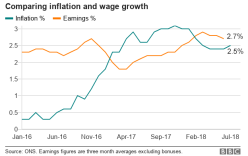
UK inflation rose to 2.5% in July, after holding steady at
2.4% in the previous three months, as the cost of transport and computer games increased.
It was the first jump in the Consumer Prices Index (CPI) measure since November and was in line with forecasts.
Meanwhile the Retail Prices Index (RPI) measure of inflation fell to 3.2%.
The Department for Transport uses the RPI figure to set the maximum annual increase for regulated rail fares.
Despite the rise for CPI, wage growth is still outstripping inflation. On Tuesday, the Office for National Statistics said that average earnings, excluding bonuses, rose by 2.7% for the three months
to June.
Wednesday's inflation figures show that increases in computer games and transport - up 5.6% in the year ending July 2018 - were partially offset by falls in the price of clothing.
For manufacturers, the cost of raw materials was 10.9% higher than in July 2017, the biggest rise in more than a year.
Much of that cost pressure has been caused by oil price increases of more than 50% over the period.
The CPI figure had hit a five-year high of 3.1% in November, when the inflationary effect of the pound's fall following the June 2016 Brexit vote reached its
peak.
Earlier this month the Bank of England forecast inflation would rise to 2.6% in July before falling back.
The Bank expects inflation will settle down to just above its 2% target in two years' time as it gradually increases interest rates.
'Little respite'
Tej Parikh, senior economist at the Institute of Directors, said the rise in inflation showed the cost of living squeeze was not yet a thing of the past.
"For households this isn't good news, as the already weak growth in their pay packets is being further eroded by high prices. This is likely to weigh down consumer spending, posing fresh problems for
embattled high street businesses," he said.
"As the temporary factors pushing prices up fade away, inflation is expected to slowly fall back close to the target rate, but that will offer little respite for workers without a significant pickup
to their salaries in tandem."
Samuel Tombs at Pantheon Macroeconomics added: "Unless inflation in the services sector strengthens dramatically, CPI inflation will fall below the 2% target in the first half of next year."

Never leave your dog alone in a car on a warm day. If you see a dog in
distress in a hot car, dial 999.
Many people still believe that it’s ok to leave a dog in a car on a warm day if the windows
are left open or they’re parked in the shade, but the truth is, it’s still a very dangerous situation for the dog.
A car can become as hot as an oven very quickly, even when it doesn’t feel that warm. When
it’s 22 degrees, in a car it can reach an unbearable 47 degrees within the hour.
What to do if you see a dog in a car on a warm day
In an emergency, we may not be able to attend quickly enough, and with no powers of entry,
we’d need police assistance at such an incident.
Don’t be afraid to dial 999, the police will inform us if animal
welfare assistance is required.
Help a dog in a hot car
Establish the animal's health and condition. If they're displaying any signs of heatstroke dial 999
immediately.
If the situation becomes critical for the dog and the police are too far away or unable to attend, many people’s
instinct will be to break into the car to free the dog. If you decide to do this, please be aware that without proper justification, this could be classed as criminal damage and,
potentially, you may need to defend your actions in court.
Make sure you tell the police what you intend to do and why. Take pictures or videos of the dog and the
names and numbers of witnesses to the incident. The law states that you have a lawful excuse to commit damage if you believe that the owner of the property that you damage would consent to the
damage if they knew the circumstances (section 5(2)(a) Criminal Damage Act 1971).
Once removed, if the dog is displaying signs of heatstroke, follow our emergency first aid advice. This could mean the
difference between life and death for the dog.
If the dog isn't displaying symptoms of heatstroke
Establish how long the dog has been in the car. A ‘pay and display’ ticket could help.
Make a note of the car’s registration. If the owner returns, but you still feel the situation was dangerous for
the dog, you may still report the incident to the police.
If you’re at a shop, venue or event ask the staff to make an announcement to alert the owner of the
situation.
If possible, get someone to stay with the dog to monitor their condition. If they begin to display signs
of distress or heatstroke, be prepared to dial 999.
You can also call the 24-hour cruelty line for advice on 0300 1234 999. However, if the
dog's in danger, dialing 999 should always be the first step
Safety in the Bus & Coach Industry
PSV transport and passenger-carrying vehicles such as buses, coaches and minibuses provide an essential service for
today’s commuters and leisure travellers. Operators will always strive to improve the safety of their passengers but despite the enormous strides in modern technology for detecting when a driver is
either distracted or fatigued, is enough focus given on some of the route causes in the first place?
For some considerable time now drivers have been subjected to monitoring devices such as CCTV, Green Road and RIBUS
all of which records various actions and driving behaviours. Additionally now, a new system called FRS, (Facial Recognition System) is being considered.Indeed, some companies have already started to
integrate face-detection in the design of driving safety systems. The most popular systems are able to detect driver’s fatigue, distraction, and improper behaviour. These systems consist of modules
of head-shoulder detection, face detection, eye detection, eye openness estimation, fusion, drowsiness measure percentage of eyelid closure estimation, and fatigue level classification. They are
based on fusion algorithms that estimate the eye state and other regular face status or actions.
The driver monitoring system detects fatigue through heavy eyelids, as well as other potential threats, such as
driver smoking, speaking with a phone, or not looking at the road. A camera installed on top of the dashboard is continuously measuring his face and behaviour, by observing the direction of the
driver’s face and detecting whether his or her eyes close.
If the system detects any of these behaviours, an alarm is activated in the bus, combining a noise with a visual
sign in a dashboard screen (and the vibration of a motor positioned in the seat?). If the alarm does not go off, a dispatcher in the control room will be alerted to the problem through a backend
application.
The system also allows the sending of a photo or short digitally recorded CCTV in real time as a proof. Several
actions will follow according to each operator procedure, such as calling the driver, recommending him or her a break, taking him off duty, etc.
Arguably, employers still need a better understanding of the whole range of issues surrounding their employees and
what causes these type of problems in the first place.
For example, drivers undertaking longer hours at work to cover the jobs within the difficult shift patterns.
Driving whilst suffering with fatigue is extremely dangerous, both for yourself and other road users. Driving requires intense concentration and perception but these are greatly reduced when you are
drowsy or tired. Your judgement skills are greatly impaired which can then make reaction speeds to potential dangers almost unavoidable.
Working excessive hours is proven to adversely affect ones health not to mention the damaging effect long hours can
impact upon precious family time and social relaxation.
Fatigue is also linked with the possible reasons associated with mental and/or physical performance
that
results from prolonged exertion, lack of quality sleep or disruption of the internal body clock. The degree to
which a worker is prone to fatigue is also related to
workload. For example, work that requires constant attention.
Complex or monotonous working patterns can increase the risk of fatigue.
Driving especially when tired makes you less likely to be fully in control of your vehicle. The law takes a dim
view of driving whilst fatigued. If you are caught driving whilst drowsy or you fall asleep at the wheel, you can be charged with careless or dangerous driving. If you are involved in a fatal
accident, you could be charged with manslaughter and dangerous driving which could also result in a prison sentence of up to fourteen years.
D&G welcomes any new technology that helps improve passenger and driver safety, but this has to be balanced
with properly supporting the driver in preventing these things happening in the first place. Technology should never be used to absolve the employer of its responsibilities and duty of care towards
its workers.
Merry Christmas everyone.
Sending thoughtful wishes your way in the hope you know the joy and treasures that come with the Christmas season.
Have a Merry Christmas and be safe if out enjoying this time of year.
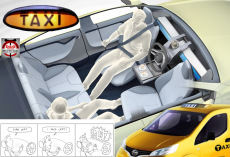
When it comes to the future of transportation, the first thing that comes to mind is the possibility of flying cars. It's easy to imagine an urban utopia with vehicles that float through the air, swerving around buildings, reaching toward the
heavens.
While Back to the Future: Part
II wrongly predicted that we would have this technology in 2015, autonomous vehicles—which are
currently being tested—may just be the stepping stone to making this a reality. Who would've thought robot cars would be our present?
No matter what side you stand on in the safety debate, even those who have concerns still agree that this innovative technology is the way of the future.
London cab company Addison Lee is to lead
a government-backed effort into driverless car research, launching a UK firm into a field dominated by US tech companies.
Addison Lee will lead a consortium
including Ford, which has its own autonomous vehicle programme, to explore the potential for unmanned vehicles and ride-sharing services in
London.
The Merge Greenwich project, backed
by funding from the government's Innovate UK, estimates up to a third of London car journeys could be replaced by self-driving vehicles by 2025, taking up 25 per cent of the city's
transport market, worth £3.5bn.
The project will simulate how
driverless cars and ride-sharing can operate in London, focused in Greenwich, and develop a plan over 12-months for a driverless transport pilot in the borough.
The big players | Driverless cars
Addison Lee chief executive Andy
Boland told the Telegraph: "Today we will do 30,000 trips in London and all our data and information can be used to simulate demand and supply availability."
Mr Boland said he expected some of
Addison Lee's services to be autonomous in London within the time frame. "Someone developing autonomous vehicles in California doesn’t mean it will be five years ahead of London soon,", he said,
"where we come into it - and Innovate UK's push - is really about propositions for a real-world environment."
Ford has been pushing its own efforts into driverless car tech, investing $1bn in Argo AI, an artificial intelligence company which will produce the software needed for a new generation of self-driving
cars.
Ford will provide the Merge project
with its knowledge of creating driverless cars, while Addison Lee will provide data from its commercial fleet. Mr Boland said he believed car manufacturers would "ultimately own and manage
the global supply chain" of autonomous vehicles, rather than tech companies.
The US car giant has stated it
plans to have its own driverless cars on the roads by 2021, as well as licencing its technology to other manufacturers. It recently partnered with ride-sharing company Lyft in a move to
accelerate its efforts to deploy driverless cars.
Because this technology is so new, is it too soon for them to share
the roads with human drivers? Would you trust a robot or computer system with your life? How safe are they, and should we be putting our lives in the hands of robot
technology?
BBC Radio Essex Friday 11th August 2017
Sadie Nine talking about bus drivers and wheelchair users with Carleton Maflin and Alison.

Terrorists have a lot of work to do before they attack. They need to plan and prepare; buy and store materials; and fund their activities.
Terrorists live within our communities and blend in. However, behind closed doors they may be storing bomb making materials or meeting others to plan attacks. Are you suspicious of a property
where there is unusual activity or strange comings and goings that don't fit day-to-day life?
Terrorists use surveillance to help plan attacks. Have you seen anyone taking pictures or filming CCTV cameras or making notes about other security arrangements? Has it made you suspicious? If you
have seen this or know someone who takes an unusual interest in security measures, we need to know.
Terrorists need communication. They communicate with others to plan meetings or buy materials and chemicals. To avoid possible detection they use multiple anonymous pay-as-you go mobile phones and
swap SIM cards and handsets. If you are suspicious about someone who uses phones in this way, we need to know.
Further examples of suspicious activity can include:
- Van - Terrorists need transport. If you work in commercial vehicle hire or sales, has a sale or rental made you suspicious?
- Passport - Terrorists use multiple identities. Do you know someone with documents in different names for no obvious reason?
- Mobile phone - Terrorists need communication. Anonymous, pay-as-you-go and stolen mobiles are typical. Have you seen someone with large quantities of mobile phones? Has it made you
suspicious?
- Camera - Terrorists need information. Observation and surveillance help terrorists plan attacks. Have you seen anyone taking pictures of security arrangements?
- Chemicals - Do you know someone buying large or unusual quantities of chemicals for no obvious reason?
- Mask and goggles - Terrorists use protective equipment. Handling chemicals is dangerous. Maybe you've seen goggles or masks dumped somewhere.
- Credit card - Terrorists need funding. Cheque and credit card fraud are ways terrorists generate cash. Have you seen any suspicious transactions?
- Computer - Terrorists use computers. Do you know someone who visits terrorist-related websites?
- Suitcase - Terrorists need to travel. Meetings training and planning can take place anywhere. Do you know someone who travels but is vague about where they are going?
- Padlock - Terrorists need storage. Lock-ups, garages and sheds can all be used by terrorists to store equipment. Are you suspicious of anyone renting a commercial property?
We need members of the public to trust their instincts and pass on information which could help stop terrorists in their tracks. Trust your instincts and call the Anti-Terrorist Hotline
on 0800 789 321.
Our specially trained officers will take it from there.
A textphone service is available for people with speech or hearing difficulties on 0800 032 45 39 (text messages from mobiles are not accepted).
http://content.met.police.uk/Site/terrorism
The child protection system across the UK
Each UK nation is responsible for its own policies and laws around education, health and social
welfare. This covers most aspects of safeguarding and child protection.
Laws are passed to prevent behaviour that can harm children or require action to protect children.
Guidance sets out what organisations should do to play their part to keep children safe.
Although the child protection systems are different in each nation, they are all based on similar
principles.
The UK’s 4
nations – England, Northern Ireland, Scotland and Wales – have their own child protection system and laws to help protect children from abuse and neglect. Each nation has a framework of
legislation, guidance and practice to identify children who are at risk of harm, and take action to protect those children and prevent further abuse occurring.
https://www.nspcc.org.uk/
Current rates
These rates are for the National Living Wage and the National Minimum Wage from 1 October
2016.
|
Year |
25
and over |
21
to 24 |
18
to 20 |
Under 18 |
Apprentice |
| October 2016 (current
rate) |
£7.20 |
£6.95 |
£5.55 |
£4.00 |
£3.40 |
The National Living Wage is to rise to £7.50 an hour from April 2017
following Chancellor Philip Hammond's Autumn Statement announcement on 22/11/2016
The Autumn Statement has announce the National Living Wage over-25s is rising 4% from £7.20 to £7.50 an hour but it's
still not a real 'living wage'
More information can be found at:
https://www.gov.uk/national-minimum-wage-rates














